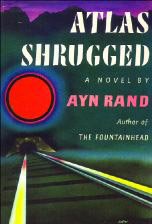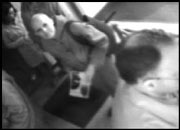Let’s say you’re George Plimpton. How the transformation occurred, exactly, doesn’t matter. Gregor Samsa in The Metamorphosis became an insect; you’ve become a WASP. A frail, rail-thin, congested-sounding East Coast intellectual, stiff-seeming, brittle, built from Popsicle sticks. Everything about you is vertical. Your suits, even as you wear them, just sort of hang there.
And your words, your faultless sentences, just sort of hang there: “It’s amazing how many writers,” and here you pause, “do not like writing at all.” You say it offhandedly, but it wrecks the room.
Minutes later, it occurs to you, George Plimpton—the thought seizes you, as it surely did the real Plimpton, during last week’s Benaroya Hall lecture—just how many lecture-goers do not like lectures at all. You lecture beautifully, you devastate the room with humor and authority, but many a lecture-goer does not in fact want a lecture; what they want is to go.
And so they do. A few minutes before the end of the lecture, a lecture-goer stands. You, at the podium—world famous editor, essayist, biographer—you are in the middle of making a crucial point about Thomas Mann. The lecture-goer is in the middle of feeding her arm into her coat. You cast about rhetorically to remember some of the 39 alternate endings Hemingway wrote for A Farewell to Arms. The lecture-goer casts about gawkishly for her umbrella. You stumble onto a Gertrude Stein anecdote, the story of how one inimitable line of hers first entered her mind. The lecture-goer stumbles over a man on her way to the aisle.
At which point nearly everyone occasions to think two things: Who is that cow, and who has a cattle prod? But just as one extends their leg into the pathway, intending to trip the departing lecture-goer and, thereby, drive her glittery brooch into her sternum, someone else, in another row, rises, too. And another. If you are sitting in the back, what you are about to experience is a commotion the likes of which no stampede of African elephants has yet to equal. The lecture, mind you, is not over.
Yet there they go, streaming out, making a boisterous evacuation—their clothes rustling, their long earrings crashing into things—all the while carrying on a mesmerizing dialogue about the finer points of their parking situation.
The gall of these cowlike lecture-going creatures is, well, galling. They subscribe to a season of lectures, knowing full well the events’ modest duration (never much more than an hour), knowing full well that they would never, for example, leave a movie early just to, say, catch a ferry. (There will be another ferry, first of all, and you should have thought of that when you decided to live on an island.)
Meanwhile, you, George Plimpton, are just trying to wrap up thoughtfully, despite the concurrent running of the bulls. You take adroitly facilitated questions from the audience (always the best part of the lecture), and make self-deprecating remarks about your meandering anecdotes (“Research is something I’m not very good at, except to get off on the wrong track, which I’m afraid I did with that question”), and give disarmingly appropriate thanks (“Thank you so much for coming. I suppose there’s nothing else to do”). And this columnist, distracted by the mammal melee, will scarcely be able to pay attention.
Whereupon, you, George Plimpton, look out onto the bovine crowd and think: Why did I agree to come to this city? What am I doing in this barnyard?







